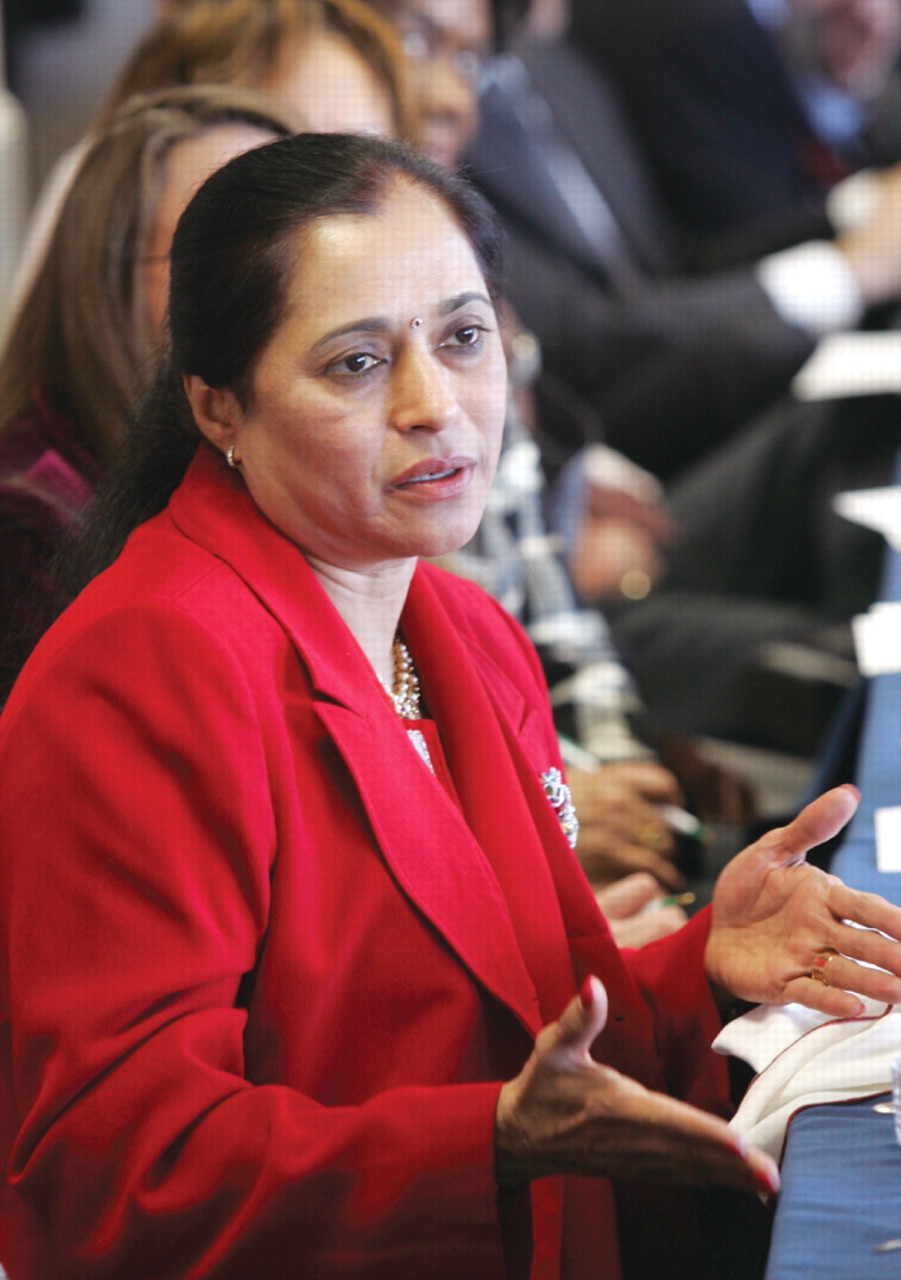As a young girl growing up in northern India, Jyoti Shah, M.D., can recall her father expressing a desire to see her become a doctor. Today, not only has she fulfilled that vision, but she has met a goal she set for herself as a medical school student and later resident at the St. Vincent Medical Center in New York City: to acknowledge the day-to-day struggles of people with serious mental illness and make a difference in their lives.
“I have great respect and admiration for my patients,” she told Psychiatric News.
Her sense of duty extends beyond the well-being of individual patients.“ As a psychiatrist, I feel I have an obligation to the community at large,” she said, by “educating them about mental health issues and advocating for certain consumer groups,” such as children and veterans with mental illness.
As president of NAMI-Pennsylvania, Shah serves as an advocate for consumers at the state level by speaking at legislative hearings. According to NAMI's public affairs office, Shah is currently the only psychiatrist who is a president or executive director of one of the organization's state chapters. She is also immediate past president of the Pennsylvania Psychiatric Society. (NAMI's national president is psychiatrist Suzanne Vogel-Scibilia, M.D.)
For the past five years, Shah has been a vocal participant in hearings related to mental illness and treatment and has helped to shape NAMI's policies.
While chief of the psychiatry service at the VA Medical Center in Wilkes-Barre, Pa., from 1987 to 1996, Shah participated in strategic planning meetings within the VA to discuss ways to collaborate with the local NAMI affiliate, she said.
She is an active participant in NAMI-WALKS, which raises funds for the organization and takes place in more than 60 U.S. cities, and other“ stigma-busting” events sponsored by NAMI. “These activities give consumers a strong voice,” Shah remarked. “I am so proud to be on their team.”
In addition, she coordinates numerous workshops at NAMI-Pennsylvania's annual conference. Recently those workshops have addressed mental health issues pertaining to soldiers returning home from Iraq and Afghanistan.
Family Members Play Recovery Role
Shah's involvement with formal family and consumer education began in 1994, when she joined Clarks Summit State Hospital in Clarks Summit, Pa., as a psychiatric consultant.
While there, she encountered frustration in patients' family members who desired to learn more about mental illness and how to help the loved one being treated.
Said Shah, “At times, visiting relatives were told by members of the treatment team that they couldn't talk about the specifics of treatment” without compromising patient confidentiality.
To help family members understand their relative's illness and the care being provided, she began running small weekly groups to educate them about psychiatric illnesses, medications, and other topics related to mental health. She also met with consumers to explain the role family plays in recovery and advised treatment-team members on how to be more responsive to family members.
After a couple of years, local media outlets found out about the classes Shah was offering and invited her to participate in the television program“ Call the Doctor,” which broadcasts to 22 counties in northeastern Pennsylvania. Shah, along with other mental health clinicians, answers questions from television audiences live about mental illness and its treatments.
Ensuring Quality Treatment
In her other professional roles, Shah steps in to ensure that people with mental illness are satisfied with their treatment.
For instance, as medical director of Northeast Behavioral Care Consortium, Shah is responsible for responding to complaints from mental health consumers under Healthchoices, a managed care program for Medicaid recipients in northeast Pennsylvania.
When patients aren't happy with the care they receive, Shah provides an independent assessment and, based on what she learns, may enhance or make changes in the treatment that they receive.
As assistant chief of psychiatric services at the Children's Service Center in Wilkes-Barre, Pa., Shah provides psychiatric assessments for children as part of a treatment team. “I love working with children,” she said. She first became involved in treating children and adolescents due to a shortage of mental health services for them in the community.
She is also a psychiatric consultant to a number of agencies in Northeastern Pennsylvania and often finds herself stepping in to provide evaluations in situations in which patients may need a medication adjusted, for instance, but must wait several weeks to see their regular clinicians.
Joseph DeVizia, executive director of the Luzerne County Office of Human Services in Wilkes-Barre, Pa., called Shah “one of the finest psychiatrists with whom I've ever worked.” The two worked together when Shah was chief of psychiatric services and he was director of the Children Service Center.
Among her talents, DeVizia observed, is the ability to blend clinical duties seamlessly with administrative leadership. In addition, he noted that she has superb rapport with patients and families. “She is always willing to take the time to talk with them about their concerns.” He also noted that Shah is not afraid to meet any challenge, whether clinical or administrative.
For Shah, what gives her joy, aside from her family—including a husband, two sons, and a “beautiful” granddaughter—is the ability to facilitate her patients' recovery.
“As psychiatrists, we must address each aspect of patients' lives to ensure that they live up to their potential and enjoy the quality of life that they deserve,” Shah remarked. ▪

